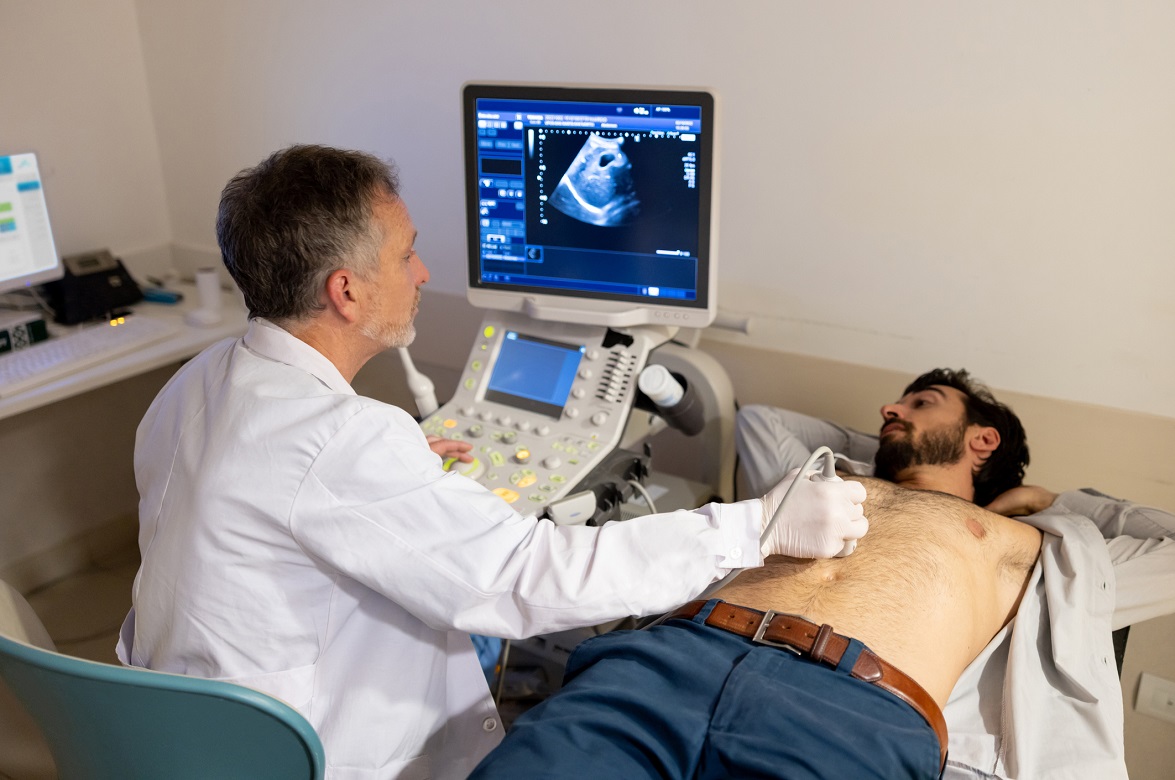Hashimoto’s disease is an autoimmune condition that damages the thyroid, often leading to...
Read More
Hypogonadism happens when the body doesn’t produce enough sex hormones, leading to a variety of symptoms. As a chronic disorder, it requires lifelong treatment and management with the help of an endocrinologist.
Hypogonadism, a lack of sex hormones, can be caused by various factors that affect the gonads, such as the testes in people assigned male at birth (AMAB) or ovaries in people assigned female at birth (AFAB). Sex hormones help control secondary sex characteristics, such as breast or testicular development, pubic hair growth, menstrual cycles and sperm production. There are three main types of hypogonadism:
happens when there is a problem in your gonads that results in underproduction of sex hormones
happens when the pituitary gland or hypothalamus, two organs that control hormone production, don’t send out enough signals to the gonads for hormone production
happens when you experience symptoms of hypogonadism even with a regularly functioning pituitary gland and is typically caused by issues affecting the ovaries, such as polycystic ovary syndrome (PCOS)
Primary hypogonadism can be caused by autoimmune diseases, genetic disorders, chronic inflammation, liver and kidney disease, radiation exposure, undescended testes or surgery on sexual organs. Common causes of secondary hypogonadism include genetic disorders, an injury or tumor in or near your hypothalamus or pituitary gland, infections like HIV, inflammatory diseases like tuberculosis, obesity, rapid weight loss, nutritional deficiencies, use of steroids or opioids, brain surgery, radiation exposure or absorption of too much iron.
Symptoms of hypogonadism depend on the type, underlying cause of the condition and sex assigned at birth. Women and AFAB individuals may experience symptoms including:
To diagnose hypogonadism, your doctor will start by discussing your symptoms and medical history and perform a physical exam. If your doctor suspects hypogonadism, they will likely take blood tests to measure your sex hormone levels, thyroid hormone levels and iron levels. Imaging tests such as ultrasounds, MRIs or CT scans also may be used in diagnosis.

Treatment for hypogonadism depends on the type, underlying conditions and gender assigned at birth. Treatment options include:

If you have hypogonadism and are trying to conceive, fertility treatments can help. For women and AFAB individuals, follicle-stimulating hormone (FSH) and human choriogonadotropin (hCG) injections can help trigger ovulation to make conception more likely. In men and AMAB individuals, gonadotropin-releasing hormone (GnRH), FSH and hCG injections can help increase sperm production.

If you have primary or secondary hypogonadism, your provider may prescribe estrogen or testosterone therapy to supplement your hormone levels. Depending on your preferences and needs, you can usually administer hormone replacement therapy via pill, patch, injection, gels or lozenges.

Some individuals may seek treatment specifically for their symptoms and underlying causes of hypogonadism, such as PCOS. Lifestyle modifications, medication and close monitoring by an endocrinologist can help you find relief from symptoms.
At Inspira, we provide personalized hypogonadism care, tailoring treatment to each patient’s unique needs. Our expert endocrinologists develop customized plans that address both symptoms and underlying causes.
Managing hypogonadism goes beyond hormone replacement—it’s a lifelong commitment to your health. We prioritize open communication and support, ensuring you feel informed at every step. For those looking to conceive, our team offers guidance on fertility options to enhance reproductive health. We’re dedicated to empowering you with the knowledge and care needed for a healthier future.
There’s no proven way to prevent hypogonadism, largely because its causes, such as hormonal imbalances and genetic factors, can be complex and vary significantly from person to person. Maintaining a healthy diet, regular exercise and adequate sleep can help stabilize your hormone levels.
This condition can start during fetal development, before puberty or during adulthood. Signs and symptoms may look different depending on the onset age. For adolescents, hypogonadism may involve a delay in puberty. For adults, it may involve infertility or low libido.
While hypogonadism typically cannot be cured, it can be managed through hormone replacement therapy and lifestyle changes. This treatment helps alleviate symptoms like low libido and fatigue. Continuous monitoring and adjustments are essential, as hormone levels can fluctuate due to various factors. Lifelong management is important to enhance quality of life and reduce potential complications related to bone density and metabolic health.

Hashimoto’s disease is an autoimmune condition that damages the thyroid, often leading to...
Read More
The thyroid is a small yet powerful regulator of vital bodily functions. Explore how lifestyle...
Read More
According to the American Thyroid Association, about one in 10 Americans suffer from some type of...
Read More